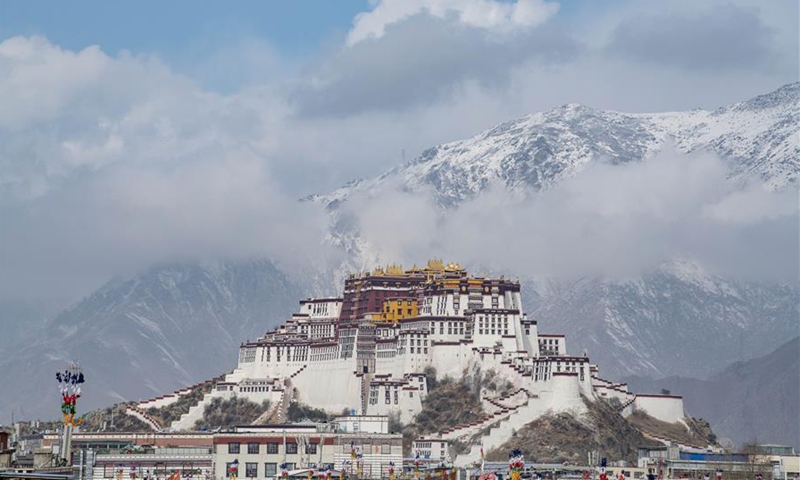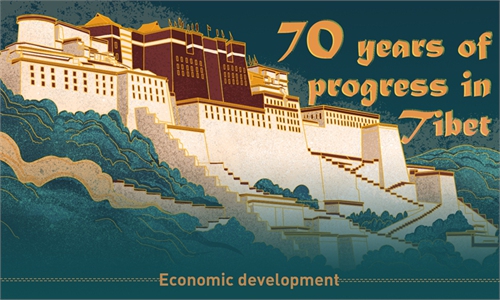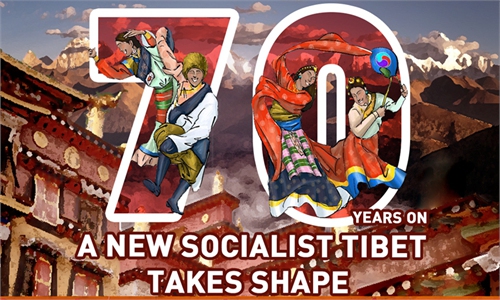
Photo taken on March 19, 2020 shows the Potala Palace after a snowfall in Lhasa, southwest China's Tibet Autonomous Region. The snowfall has improved the soil moisture which is conducive to the ongoing spring sowing.Photo:Xinhua
The Chinese central government will largely increase investment to promote regional economic growth in Tibet during the 14th Five-Year Plan (2021-25) on the basis of the 393.7 billion yuan ($61.2 billion) implemented investment during the 13th Five-Year Plan (2016-20), said Qizhala, chairman of the Tibet regional government, in the press conference.
More projects to advance new infrastructure will be promoted. In addition to the progressing Sichuan-Tibet Railway project, utilization and development of water resources will also enter the national focus of research, said Qizhala.
The relationship between protecting ecology and economic growth should be balanced, said Wu Yingjie, Communist Party of China chief of Tibet, adding that since 2016, Tibet has provided a total of 700,000 ecological jobs to local people.
China's State Council Information Office on Friday issued a white paper on the peaceful liberation of Tibet and its development over the past seven decades.
During the past seven decades, the people's living standards have been largely improved, Wu told the press conference on Saturday.
The last group of 628,000 impoverished residents in Tibet have been lifted out of poverty and all 74 impoverished counties have been removed from the poverty list. Per capita disposable income in Tibet has grown by double digits over the past 18 years, reaching 14,598 yuan ($2,269) in 2020, up 416 times from 35 yuan in 1959, Wu said.
Global Times


